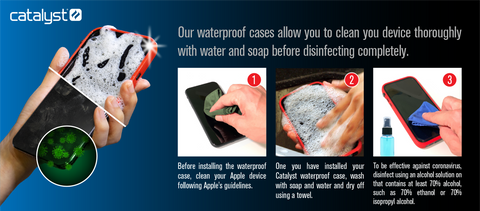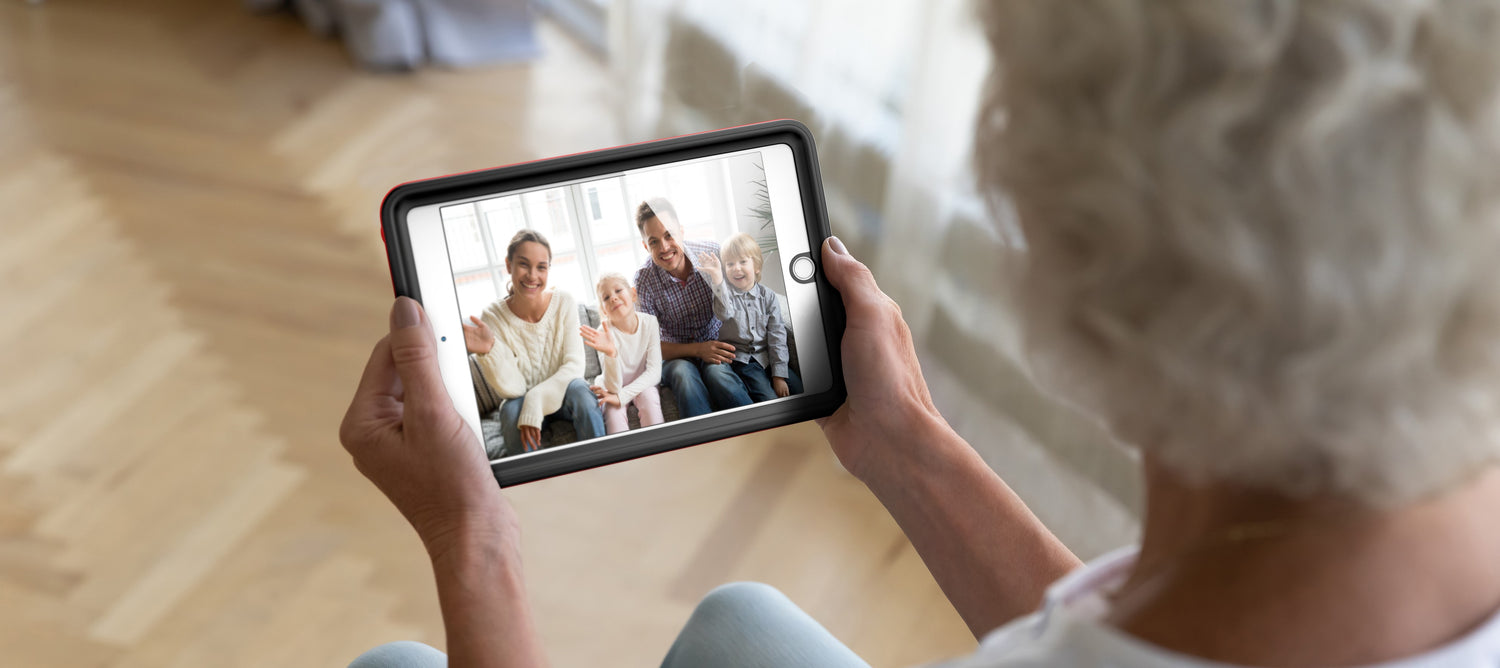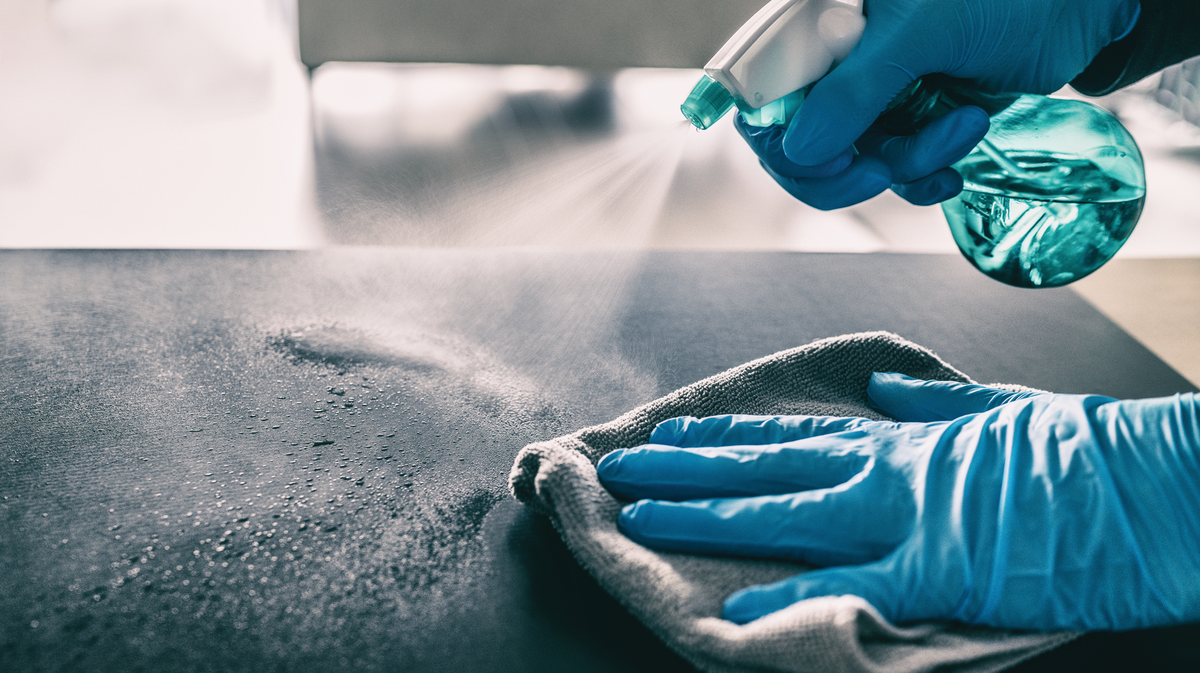Many of us have an elderly parent, grandparent, relative or friend that we want to protect from the threats of COVID-19 but are often unsure how best to do so. We at Catalyst want to provide you with advice that can help you support your elderly loved one in these difficult times, whether they live with you, away from you or indeed in a care facility.
Why are the elderly more at risk?
The CDC estimates the death rate for adults aged between 65 and 84 in the US can be as high as 11% and that figure increases to 27% for those aged 85 or older. This is in stark contrast to the reported death rate of 0% for children aged 9 or below and a mere 0.4% for those aged below 60. But why is this the case?
Those with underlying conditions are at greater risk of having severe Covid-19 cases. A study in Italy found that as many as 99% of those who died from COVID-19 were previously carrying at least one underlying condition prior to contracting the virus. Conditions such as heart disease, diabetes, dementia and indeed cancer are more prevalent among older demographics. This is the key contributing factor to the higher fatality rate for those aged 60 plus.

The above graph shows how older generations are more at risk. They are the ones who need support and protection. So here are some ways you can help protect older adults from the risks of coronavirus in various scenarios.
If your elderly relative lives with you
1. Understand how it’s transmitted:
According to the CDC, coronavirus is thought to spread for the most part from person to person. This is most frequently observed in instances when people are in close quarters, less than 6 feet apart. Microscopic respiratory droplets can be dispersed when an infected person coughs or sneezes. These droplets can arrive on a person’s face, mouth or indeed be inhaled into the lungs. They can also land on surfaces which can then be touched by hand and transferred to the face and mouth.
While people are thought to be most contagious when they are experiencing symptoms of COVID-19, it has been reported that the virus can spread without symptoms appearing. This means that it is possible for anyone to spread the virus without even displaying any symptoms or knowing that they have it.
2. Know what symptoms to look out for
The COVID-19 virus affects people in different ways. COVID-19 is a respiratory disease and according to the World Health Organization, its most common symptoms include coughing, fatigue, fever as well as aches and pains, sore throat and shortness of breath. If any of these symptoms appear in any of your family members, make sure they self-isolate to limit the spread of the virus.
Although it has yet to be proven, many of those who contracted COVID-19 have reported a loss of smell and taste. It is important to be aware that as many as one in four cases of COVID-19 could be asymptomatic. This means that you can contract the virus from someone who hasn't experienced any of the symptoms described above.
3. Social distancing and isolation
Consider segregating your house or apartment so that your elderly family member can remain isolated. This is especially important if you have children in the house. While the risk of coronavirus to children may be minimal, they can just as easily carry and spread the virus without displaying any symptoms. To limit the spread of germs within the home, avoid sharing household items such as cups, utensils, bedding etc.
4. Use necessary PPE (Personal Protective Equipment)
There has been much debate on the merits of face masks. However, the CDC, as well as the WHO and a number of governments, have recently changed their stance to advise all people to wear face masks when in pubic and where social distancing is difficult to maintain. Ensure your elderly relative wears a mask should they need to go out in public.
5. Prevent contamination from outside sources
The CDC has advised on avoiding any non-essential visits into your home. For essential visits, ensure the necessary PPE such as a face mask is being worn. For anything you purchase, borrow or pick up from outside the home, these items should be cleaned or disinfected. There are a number of techniques to apply to various food types. Some need to be washed, some disinfected and others just unwrapped. Watch this video for some great tips on cleaning and disinfecting your groceries.
6. Seek professional medical advice
If you or your family member experience any symptoms, contact your doctor or medical center to seek advice on testing and referrals. Avoid rushing to the hospital as many of these facilities may be experiencing unusually high volumes of patients and this may increase the risk of contracting the virus or indeed passing it on. Always call ahead and seek advice on the best means of engaging your medical practitioners.
If your elderly relative lives away from you
Within the Catalyst team, many of us have elderly love ones who are living alone, both nearby or in many cases, in another city altogether. It is natural to feel distant and helpless in these situations. However, there are a number of measures you can take to provide support in these circumstances.
1. Maintain regular contact
Schedule regular check ins with your elderly loved one. Provide the emotional support that we all need to stay positive in these difficult circumstances. Provide the practical information needed to apply the necessary measures limit the chances of contracting the virus. Ensure they have the necessary food, medication and supplies. In many cases, IT support may be needed to ensure they remain online and able to make use of the necessary online resources.
If living far away, provide a telephone number for a coronavirus hotline that they can call should any symptoms arise. Some cases of COVID-19 have reported a very steep deterioration so it’s important to establish contact by phone or text quite regularly.
Using an Apple Watch will help your loved ones stay in touch, especially for those who are not used to communicating with mobile devices. The watch will of course stay on their person to notify them should anyone try to contact them. Furthermore it can provide a quick and easy means of contacting emergency services and communicating their location. This can be triggered automatically should they fall or have an accident.
2. Avoid unnecessary visits
Although it may seem natural to be present to provide support, resist the temptation to visit and provide company to these relatives. It may only increase their chance of contracting the virus. Ensure they are aware of the risks and recommendations around unnecessary visits. As you won't be around to police this, encourage them to be disciplined and vigilant.
If they have in-home care attendants working with them, ensure they are up to speed with the best preventative measures and are utilizing the necessary PPE (Personal Protective Equipment).
3. Leveraging online resources to minimize outside activities
We suggest listing out all of the regular activities that they leave the house to do. Help them to identify which of these tasks can be carried out online. Help them organize online accounts and activities they can carry out from home. Here are some examples of resources that you can introduce.
Online grocery shopping - If you are in the US, you can use an app like Shipt to bring you essentials with same day delivery. If you are outside the US, Amazon Fresh may be available and if not, you may be able to order directly from grocery stores such as Waitrose in the UK.
Telemedicine - In your area, there may be services available whereby you can receive medical checkups, referrals or diagnosis from medical professionals online. This won't involve leaving the house to risk unnecessary exposure to the virus. Ask your local medical professional for recommendations.
Online banking - If your relative is not set up with online banking, help them do this and ensure they are able to carry out all regular banking tasks unassisted. They may be more comfortable with phone banking or even postal services which are also commonly available.
4. Stocking up on essentials
If supplying groceries or supplies, leaving these things on the doorstep and walking away is perhaps the kindest thing you can do. You may consider stocking up on essential medication as global supply chains have become far less predictable. This may require a longer subscription period from their physician to buy medication in bulk. If you manage to buy a larger quantity, make sure to store surplus medication in the refrigerator or a dark place with low humidity and low temperature. A good stock of vitamins, and minerals will help maintain a strong immune system. Vitamin D, it has been suggested, can directly benefit respiratory tract infections and help maintain a strong immune system that can resist coronavirus.
If your elderly relative lives in a care facility
If your elderly relative is in residence in a care facility or nursing home, you must first evaluate if their current residence is prepared to handle coronavirus. Here are some questions that you can ask their care facility to ensure standards are being met.
- Are they applying the desired level of hygiene practices to minimize the spread of the virus? Are they disinfecting regularly used surfaces?
- What protocols do they have in place that allow for social distancing?
- Do they have sufficient medical supplies such as medication, masks and other protective equipment?
- Are they carrying out regular check ups to identify and isolate any positive cases early? What notification procedures do they have in place should someone test positive. And what actions would be taken should a positive case appear within the unit.
Put a contingency plan in place
In the instance in which you are not satisfied with these responses, you will need to have a contingency plan in place. This contingency will really depend on your circumstance and what other viable options are available to you. You may consider moving to another care facility that is better prepared for dealing with these unique circumstances. However, this may of course not be a desirable option considering availability and the increased likelihood of exposure to the virus during the move.
You may consider inviting them to move into your home but again, you must evaluate your own circumstances and ability to provide a safe environment. It is also important to consider if you have children in your home. As we have mentioned already, they can easily be asymptomatic carriers. In many cases remaining in a nursing home may limit their exposure to coronavirus carriers. Again, refrain from unnecessary visits or contact. If you do have to visit them, maintain distance and avoid hugs or kisses.
Consider getting flu shots
While a flu-shot will not prevent you from contracting coronavirus, it will prevent you developing a flu that will add unwanted complications to the situation. If you develop flu symptoms, you may need to seek medical attention and even testing. These symptoms will also confuse any diagnosis you receive from a doctor and put unnecessary stress on the health system.
For all 3 scenarios, apply general/personal hygiene:
It is important that you inform and encourage your elderly loved ones to follow the recommended hygiene procedures as much as possible. It is especially important for anyone coming into contact with an elderly relative to be as vigilant as possible with personal and/or home hygiene. Here are some of the basic hygiene tips from the CDC.
1. Cover mouth when coughing or sneezing
Use a tissue where possible and if none is available, sneeze into your elbow instead of your hand. Throw used tissues in the trash and wash your hands immediately.
2. Wash your hands
This is an obvious one but it’s critical to clean your hands thoroughly and regularly. It’s recommended that you scrub your hands for 20 seconds using either a bar or liquid soap under running water, hot or cold. If you do not have access to soap then hand sanitizer with no less than 60% alcohol.
3. Avoid touching your face
As we have seen, coronavirus can most likely spread from a cough or sneeze by a symptomatic carrier and rest on top of a range of surfaces. So avoid touching surfaces unnecessarily. Use a tissue or gloves when opening public door handles, pushing elevator buttons or while holding handrails. And at the same time, avoid touching your face unnecessarily. A study by the US National Center for Biotechnology Information in 2015 found that people will touch their face, unknowingly, upwards of 23 times per hour. So you can see how easily germs can be passed from a contaminated surface to your face.
4. Clean and disinfect
Clean and disinfect frequently touched surfaces regularly. The CDC in fact, recommends cleaning and disinfecting frequently touched surfaces daily. If your elderly relative is receiving care either in a care facility or in their home, it could be worthwhile helping to disinfect surfaces regularly, while maintaining distance where possible. These surfaces include door and window handles, kitchen and food preparation areas, counter tops, bathroom surfaces, toilets and taps, touchscreen personal devices, personal computer keyboards, and work surfaces.

5. Consider hygiene of personal devices
One of the most regularly touched surfaces that many people do not consider is your cell phone or other personal device such as an iPad or watch. Studies have shown that we touch our phones upwards of 2,600 times per day and if left unwashed, they can harbor 17,000 germs each. So if you are washing your hands but still regularly touching your phone then you are keeping these germs in circulation. The CDC in fact, recommends cleaning and disinfecting frequently touched surfaces, like your phone or device daily. So if you’d like to improve the personal hygiene of any of your family members, including your elderly relatives, then encourage them to clean and disinfect their phone regularly.
As part of our phone hygiene solution, we recommend using a waterproof Catalyst case to clean and disinfect your phone or device entirely. Unlike other phone hygiene solutions, this will allow you to fully submerge your phone or device, either under a running tap or submerged under water entirely. You can then disinfect your device using an alcohol solution that contains at least 70% alcohol, such as 70% ethanol or 70% isopropyl alcohol. our phone and device hygiene solutions is in line with the CDC recommendation to clean and disinfect frequently touched surfaces regularly. Your case will protect the ports and openings of your phone from moisture getting in and all surfaces of your Catalyst case can accommodate 70% alcohol disinfectant without issue.

Our elderly loved ones are at risk from coronavirus and we at Catalyst want to support them in any way we can. Protecting them will require vigilance, patience and cooperation from everyone to ensure we can weather this storm and come out the other side, sooner rather than later.



Leave a comment
All comments are moderated before being published.
This site is protected by hCaptcha and the hCaptcha Privacy Policy and Terms of Service apply.